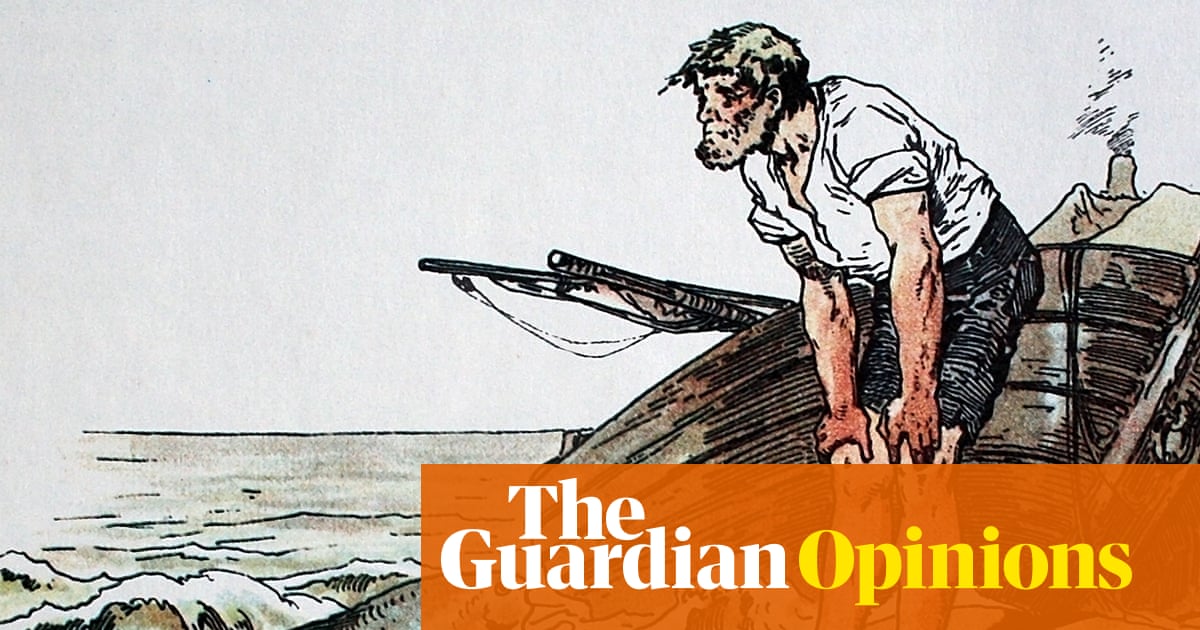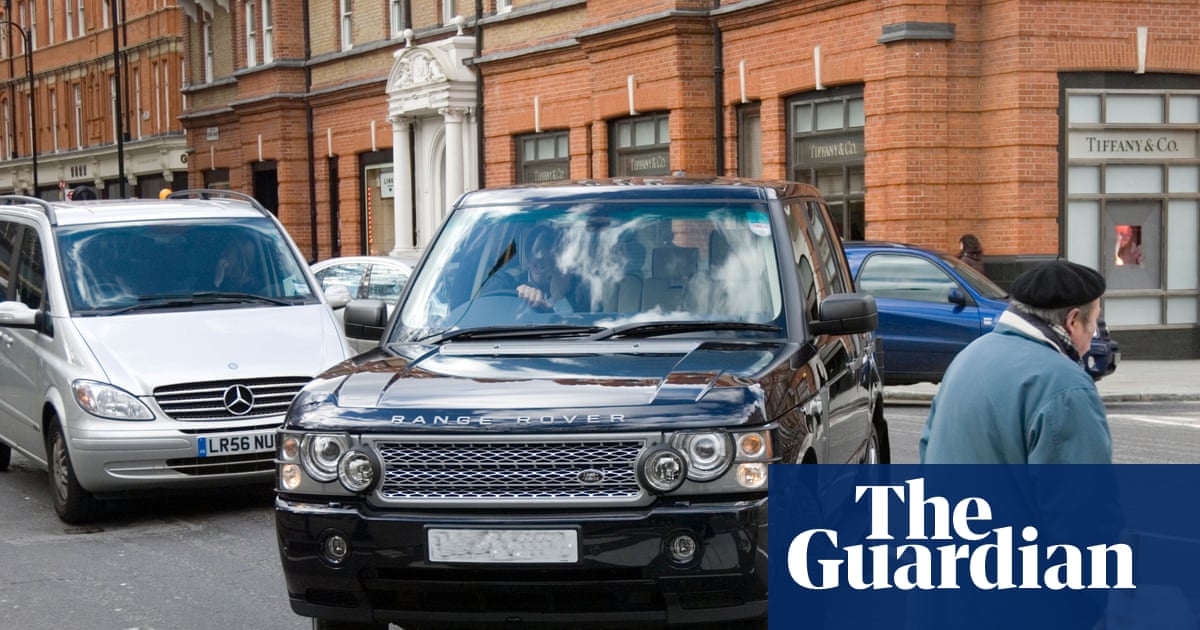Among his circle of friends, Roberto Cremona says there are one or two umarell – a word coined to describe retired Italian men who spend their time peering through the mesh fencing of construction works, casting judgment and offering up unsolicited advice.
“When we meet for coffee, they often say: ‘Did you see that construction site over there? They’re doing this or that wrong, we could do a better job’. These characters are everywhere,” Cremona adds.
The term umarell was created by the Italian writer Danilo Masotti in 2005 and originates from umarèl, a dialect word from his native city of Bologna meaning “little guy”.
As scenes of the busybody pensioners, who are especially passionate about roadworks, became more noticeable across Italy, the word took on a life of its own, even featuring in a Burger King advert in 2016 in response to incessant questions from Milan’s umarell about when construction of the company’s new premises would be complete. Then, in 2021, the word entered the Italian dictionary.
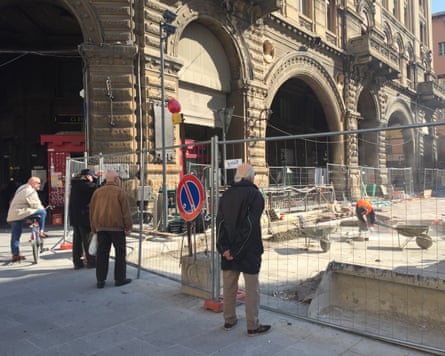
The umarell typically operate in packs, usually after they’ve had breakfast together at a bar. Their stereotypical look is an anorak and cap, and they tend to pry on construction works with their hands clasped behind their backs.
A British equivalent might be akin to Mr “You don’t want to do it like that!”, a comedy character invented by the comedian Harry Enfield in the 1990s.
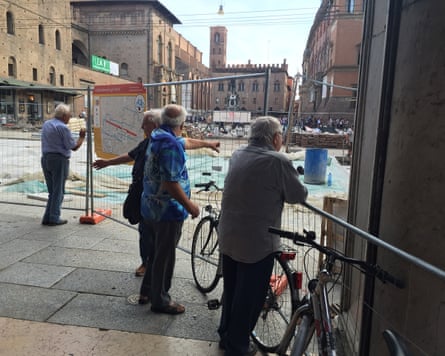
Cremona, however, distanced himself from the true umarell crowd in Villasanta, a town close to Monza in northern Italy’s Lombardy region, after its mayor, Lorenzo Galli, decided to make use of local pensioners’ time and curiosity by recruiting them to monitor public works and report any imperfections. Cremona, along with seven of his peers, including one woman, Gabriella Garatti, readily applied for the volunteer role, and got the job, which he says requires the ability to resolve issues and is not about offering unwanted advice.
Cremona, 69, said he felt “a calling” to help maintain the resources-strapped town.
Each recruit has their own patch of the town to keep watch over, working in shifts of two to three hours to identify problems that need fixing, whether it be a pothole or a faulty street lamp, and to inspect progress in roadworks or make sure the cutting of grass is up to scratch.
They are, in essence, professional umarell. But Galli does not define it that way.
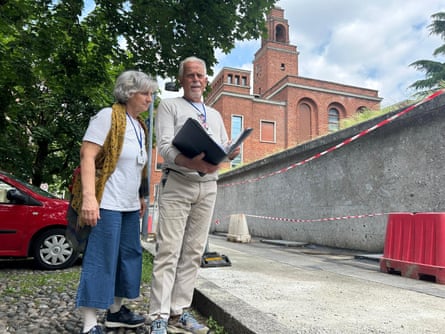
“A typical umarell is a retired gentleman who in the morning has little to do and so visits the construction sites, maybe because they are nostalgic for when they worked,” the mayor said.
In fact, the first rule of the job is that they must not be a nuisance for the bonafide construction workers.
Galli was pleased because the contingent came with expertise, technical skills and a deep knowledge of Villasanta, a community of 14,000 that prides itself on being full of people keen to get involved.
Cremona, for example, is a former councillor while Garatti used to be a deputy mayor.
after newsletter promotion
On one of her first shifts, Garatti, who usually travels around by bike, noted potholes created by the sub-par laying of fibre-optic cables and a junction completely bereft of signage. “This could have been dangerous,” she said.
On a drive around Villasanta, they pointed out unkempt hedges and wonky pavements before stopping off to check on a public lawn that was being mown.
They chatted for a few minutes with Fabrizio, the professional grass-cutter, and were satisfied that he was adhering to the required grass-cutting standards.
Fabrizio said he was happy to have the volunteers around to “keep track on things”, while hopefully keeping the actual umarell at bay. “They can be annoying,” he said. “Especially when they fixate on a problem that doesn’t exist.”

Cremona, Garatti and their six colleagues take their role very seriously, and they are especially enthusiastic about recently being tasked with developing the town’s car-parking facilities.
However, their biggest challenge is ensuring the weekly rota is maintained due to the team having to balance other commitments, whether it be attending a medical appointment or looking after grandchildren. Take Sergio, for example, who recently had to skip a shift so he could venture across the border to Switzerland to meet his new grandchild.
“But we always work it out between ourselves and make there is someone to cover,” said Garatti.
The initiative in Villasanta is fairly unique in Italy, although construction firms in other places, for example Pescara in Abruzzo, have accommodated their umarell by placing see-through panels in site hoardings to enable the observers to peek through.
Asked what the most satisfying thing about the role was, Garatti replied: “Contributing to maintaining decorum in Villasanta – and it’s rewarding when people compliment the work.”
Cremona, meanwhile, feels satisfied when issues get resolved. “But above all, you feel useful to society and to yourself – you’re doing something valuable with your time instead of sitting in front of the TV or complaining, as the real umarell do.”

.png) 3 months ago
114
3 months ago
114



